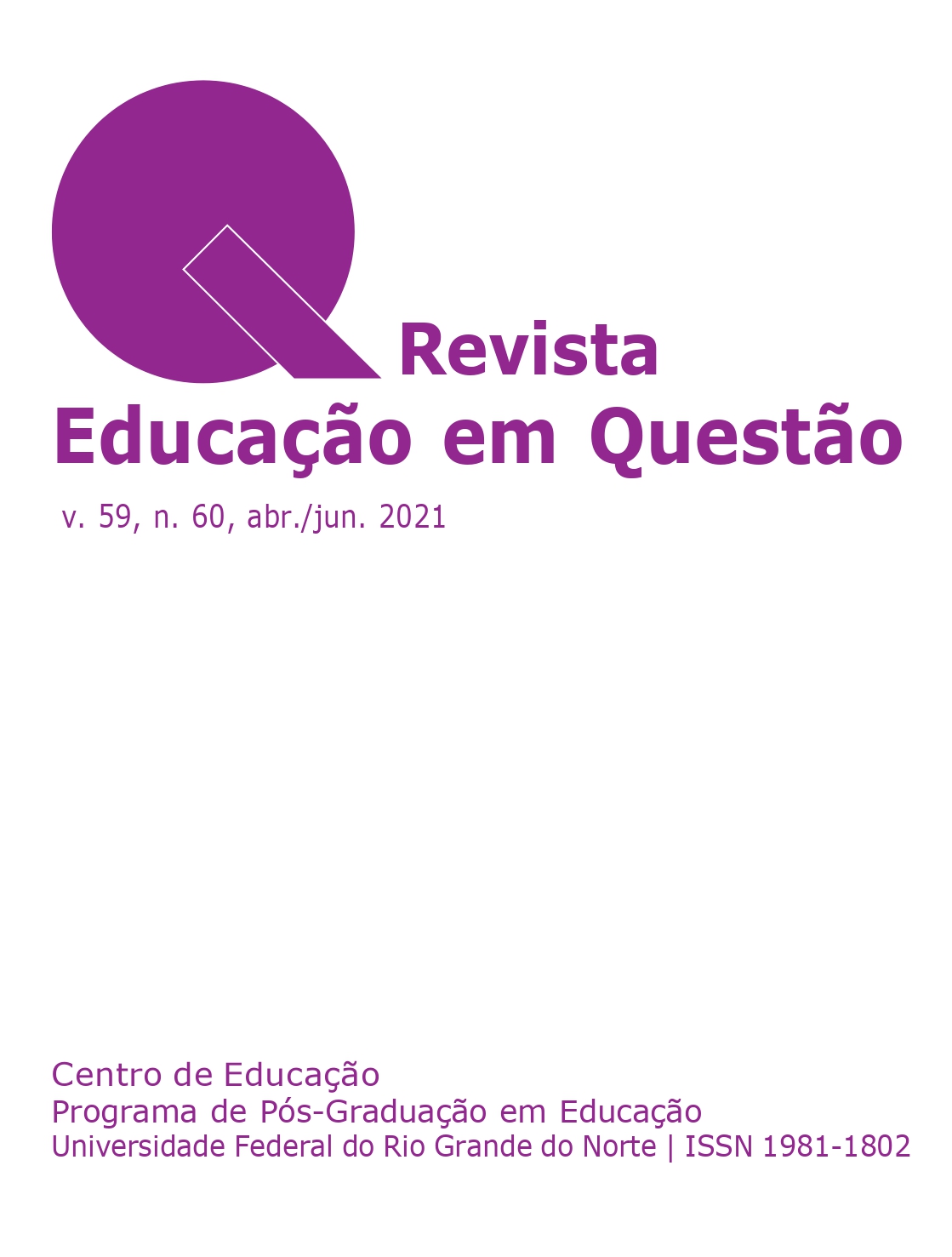Inclusive Education and initial professor formation
knowledge construction under discussion
DOI:
https://doi.org/10.21680/1981-1802.2021v59n60ID24817Keywords:
Inclusive Education, Initial Formation, Knowledge Construction, Teaching KnowledgeAbstract
Founded on the Systemic Thinking and of Tardif’s (2002) presumptions, this paper aims to know how knowledge about inclusive education is constructed in three undergraduate courses at UFSM. The investigation contemplated three main movements: mapping the curricular offerings linked to inclusive education and identification of courses with the higher and the lowest percentage of this offer, majors of History and Geography respectively; analysis of the syllabus of the courses offered; survey of a questionnaire with scholars from the selected courses. 35 questionnaires were applied, being 24 on History 11 on Geography, both on undergraduate students. As main results, the course “Fundaments of Special Education” and supervised practices and participation on projects stood out as sources of production of knowledge, with introductory characteristics. It is unanimous the feeling of unpreparedness with questions related to inclusive methodological and didactical issues, announcing the need for reinforcement of the initial teacher’s formation.
Downloads
References
BRASIL, Ministério da Educação. Decreto nº 5.626, de 22 de dezembro de 2005. Regulamenta a Lei no 10.436, de 24 de abril de 2002, que dispõe sobre a Língua Brasileira de Sinais ? Libras, e o art. 18 da Lei nº 10.098, de 19 de dezembro de 2000. Disponível em: http://www.planalto.gov.br/ccivil_03/_ato2004-2006/2005/decreto/d5626.htm. Acesso em: 4 mar. 2021.
BRASIL, Ministério da Educação. Política Nacional de Educação Especial na Perspectiva da Educação Inclusiva. Brasília: MEC/SECADI, 2008.
BRASIL, Ministério da Educação. Resolução nº 02/2015, de 1º de julho de 2015. Define as Diretrizes Curriculares Nacionais para a formação inicial em nível superior (cursos de licenciatura, cursos de formação pedagógica para graduados e cursos de segunda licenciatura) e para a formação continuada. Disponível em: http://portal.mec.gov.br/docman/agosto-2017-pdf/70431-res-cne-cp-002-03072015-pdf/file. Acesso em: 4 mar. 2021.
GRADUANDO de Geografia 1. Entrevista [questionário semiestruturado]. Santa Maria (Rio Grande do Sul), 20 jun. 2019.
GRADUANDO de Geografia 3. Entrevista [questionário semiestruturado]. Santa Maria (Rio Grande do Sul), 20 jun. 2019.
GRADUANDO de Geografia 5. Entrevista [questionário semiestruturado]. Santa Maria (Rio Grande do Sul), 20 jun. 2019.
GRADUANDO de Geografia 9. Entrevista [Questionário Semiestruturado]. Santa Maria (Rio Grande do Sul), 20 jun. 2019.
GRADUANDO de História 1. Entrevista [questionário semiestruturado]. Santa Maria (Rio Grande do Sul), 4 jun. 2019.
GRADUANDO de História 3. Entrevista [questionário semiestruturado]. Santa Maria (Rio Grande do Sul), 4 jun. 2019.
GRADUANDO de História 8. Entrevista [questionário semiestruturado]. Santa Maria (Rio Grande do Sul), 4 jun. 2019.
MATURANA, Humberto; VARELA, Francisco. A árvore do conhecimento: as bases biológicas da compreensão humana. São Paulo: Palas Athena, 2001.
PELLANDA, Nize Maria Campos. Maturana e a educação. Belo Horizonte: Autêntica Editora, 2009.
TARDIF, Maurice. Saberes docentes e formação profissional. Petrópolis: Vozes, 2002.
VASCONCELLOS, Maria José Esteves. Pensamento sistêmico: o novo paradigma da ciência. Campinas: Papirus, 2013.
Downloads
Published
How to Cite
Issue
Section
License
The Journal Education in Question shall retain the copyright in all articles that it publishes.
The authors and co-authors of articles and book reviews, published in the Journal Education in Question, shall wait for at least 1 (one) year before they are allowed to submit new works for publication.






